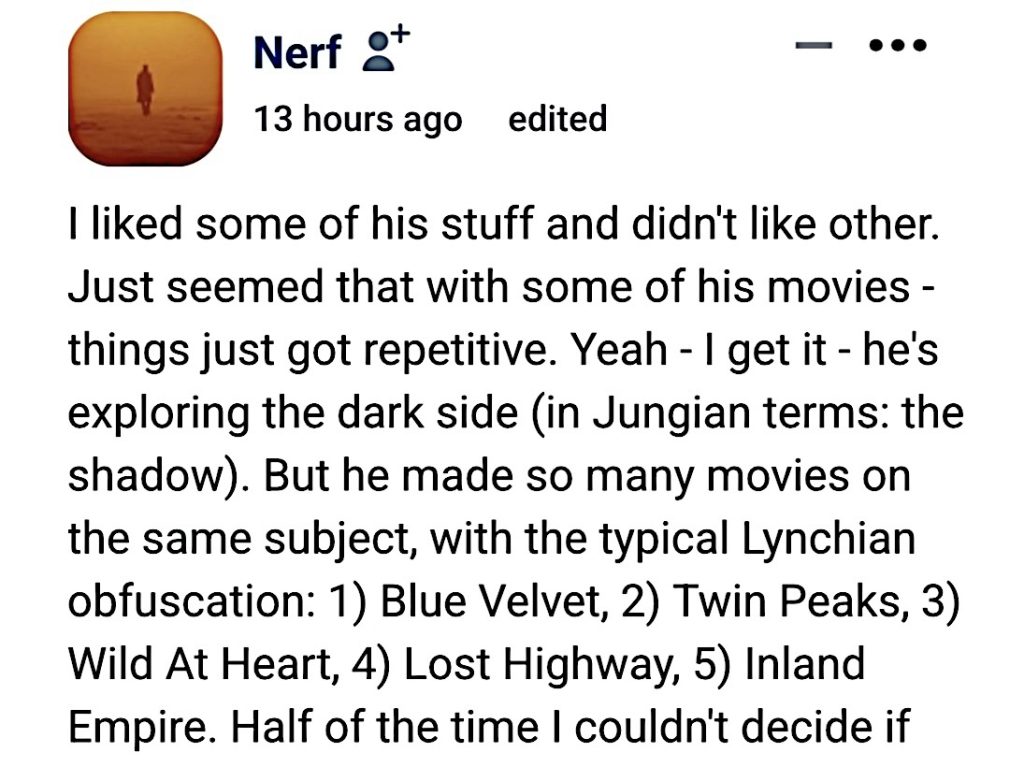Last night HE commenter “Nerf” wrote the following about the late, great David Lynch:

For the most part, “things just got repetitive” is a four-word description of what every auteur-level filmmaker tends to go through over the course of a decades-long career.
That is to say that he / she winds up making the same film or certainly the same KIND of thematically-driven film (i.e., drawn from the same inner soul pool or creative wellspring) over and over. They just emerge in this or that varying form, in some instances with greater degrees of refinement.
“A director only makes one film in his life, and then he breaks it into pieces and makes it again” — Jean Renoir.
Because despite whatever annoyance or discomfort this state of affairs may provoke in guys like Bob Hightower (“stop talking about peak periods!”) the artist has only a finite amount of psychic essence to draw from.
And that’s primarily why creative peak periods (the full, robust and unfettered emergence of creative servings or statements or heavy-cat formulations) tend to manifest most often when the artist has gotten the trial-and-error or youthful indulgence stuff out of the way and has begun to develop serious command over what he / she has inside, usually starting during his / her late 20s or early 30s.
And then it all starts to wind down during his / her early 60s. Or a bit sooner or later. Ask Pedro Almodovar about this. Ask Alfred Hitchcock, for whom the tank mostly ran dry after The Birds. (No, Frenzy wasn’t a creative rebirth — it was an opportunity for Hitch to get more sexually graphic while re-connecting with some of that old London energy.) Ask Oliver Stone, whose creative powers began to dissipate after Any Given Sunday (‘99).
If only this could’ve happened to poor Buster Keaton, whose creative glory period ENDED around age 34 or 35, when sound came in during the late 1920s.
Exceptions will sometimes occur, as Paul Schrader once pointed out, when a film artist experiences a growth spurt due to some kind of tragedy or trauma (i.e., George Stevens or James Stewart’s experiences in Europe during World War II). In which case the psychic essence trove is reenergized or freshly reflected upon.
Obviously (a) variations abound and (b) this formula doesn’t generally apply to big-time rock musicians like Bob Dylan or David Bowie or Paul McCartney, all of whom were cooking with gas beginning in their early 20s if not younger.
In 2014 Lynch, then in his late 60s, was asked when a new feature film might emerge, and he said something along the lines of “I’ve got shards and slivers and segments in my head, but I don’t have THE BIG IDEA…I just don’t have that yet.”’
Surely Lynch knew deep down that big ideas are generally not ripe for plucking when artists are in their late autumnal years. It just doesn’t work that way.
